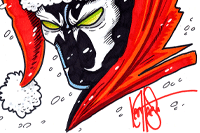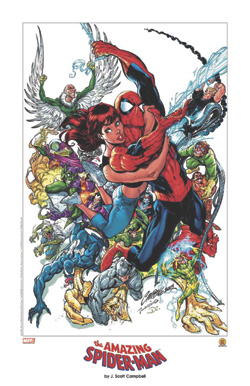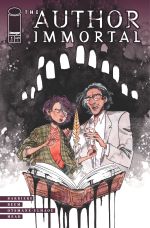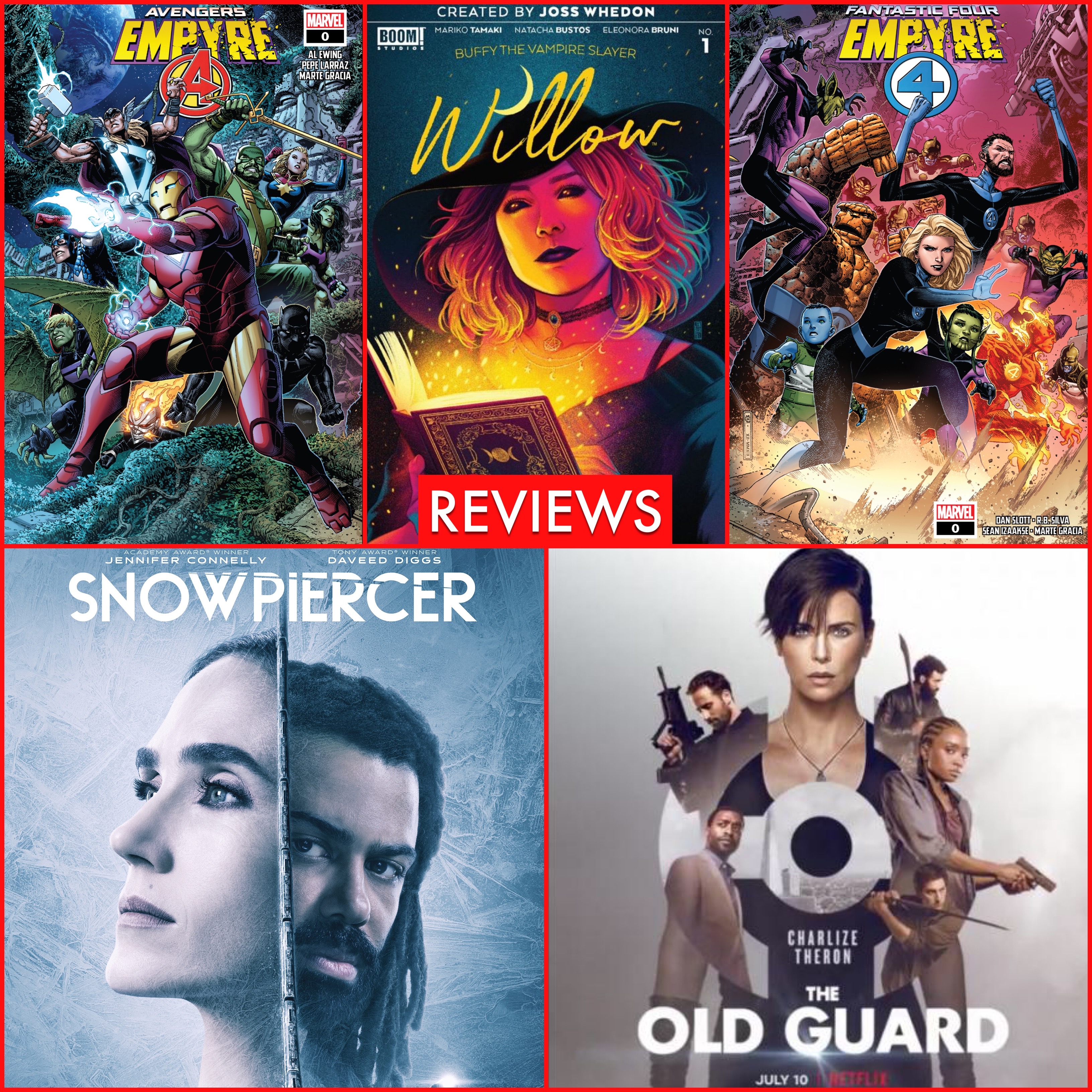|
 |
Waiting
for Tommy: Jeff Scott Campbell
By
Richard Johnston
RICH:
Well, lay it on us, Jeff. Five things that could give the
title that made your name, a household name again. Where would
you start?
JEFF: Why did I know you'd ask me that. Well, it's not
that I don't want to put my money where my mouth is, but one
of my old colleagues over at Wildstorm recently did ask me
what I would do with Gen 13, and my ideas seemed to be received
rather warmly, so I'm hesitant the give away too many details
on the chance that they may go forward. But the basic gist
of my idea was; How to you get a group of cool teenagers to
be "hip and cool" again 10 years later? My answer: Make them
hip and cool teenagers again. And my solution was that you
make identical clones of the original Gen kids so that the
group is as inexperienced and as young as they were when they
first appeared, only now, they exist in 2004 and they would
naturally adopt teenage trends and the culture of 2004. Now,
cloning isn't without its consequences which would add a whole
other level to the Gen mythology. And this wouldn't be like
the Spider-Man clone fiasco either. Remember, genetic experimentation
has everything to do with the Gen 13 history. It's the whole
basis for their existence and to me, it makes all kinds of
sense. The idea goes on in more detail from there, but you
get the broad strokes.
RICH:
Certainly. And I could see it selling too... the time is right.
There's been a resurgence lately of hot names from a few years
ago being teamed with company icons that seem to have faded
in popularity, only to see interest boom in the combination
- Jim Lee's Batman being a classic example. Is that a model
you might seek to emulate in the near future?
JEFF: Well, that's always been a no brainer to me. What's
truly funny to me are these skeptics out there who seemed
truly amazed by the success of Jim's Batman. I mean, you put
an amazing and dynamic artist on an iconic character, of course
it's going to sell gobs. Unfortunately, I think a lot of the
resurgence has to do with the fact that a lot of these other
high profile artists tried doing other smaller projects or
creator owned material and for some reason or another, found
it difficult and had to go back. I would love to someday take
a crack at Spider-Man or Batman, my two childhood favorites,
and I do think that someday I will. But for right now, my
heart is into creating new ideas that I can control, and maybe
a few years down the road, when it's not quite so trendy,
I'll be able to tackle one or both of those icon books.
RICH:
Look at you... deliberately bucking trends. Danger Girl was
one of the last breakout new comic book titles in the industry
- and a rare one too, considering it's non-superhero nature.
Since the comparative decline of Cliffhanger, everything that's
succeeded in the direct market has been, at best, a revival
of an older title or characters. What's happened to the industry?
Why does it seem no longer to support original work? Would
a new title in the manner of Danger Girl succeed as well today?
JEFF: Well, I do think that the industry would and
will support original ideas, they just haven't had a lot they've
liked that much lately. I think that guys like me have to
take some responsibility as well for shaking the retailers'
confidence in creator controlled titles delivering on time.
They know they can count on Superman and X-Men because there's
a large group of artists working to pump those books out rain
or shine. They're dependable, if not always consistent in
the quality of their content. I also think that a lot of the
creator owned fair that I've run across in recent years has
been far too self indulgent and the writers and artists seemed
to forget the fact that their books were supposed to be entertaining.
Besides craving exciting and dynamic art and storytelling,
fans want characters that they can relate to and new ideas
and genres that are exciting and, most of all, FUN. I don't
think that many of the recent original comic book ideas have
been all that much fun. In fact, I find most comic books in
general these days to be too dark, too slow, and quite frankly...dull!
I was watching a DVD documentary on Todd McFarlane recently
and there was a sound bite from Jim Valentino on there, where
he was contributing his opinions on the early 90's comic boom.
He said that the creators of comics at that time were acting
like they were rock stars and that the industry itself was
like "Arena Rock", and that now, that the industry has shrunk
considerably, comic books are once again, more like "boutique
jazz". Now, I like Jim quite a bit, but I really strongly
disagree with this analogy that comics should settle on being
boutique jazz. If we've become boutique jazz it's because
we've all allowed ourselves to be that. My thinking is much
more like arena rock, and I approach creating my comic books
with that mindset. I want my comics to be bigger than life,
summer popcorn movies, because those are the comic books I
grew up with. I like to think that I'm creating comic books
for 13 year olds, and the 13 year olds inside all of us adults.
Give the fans Star Wars, don't give them Dune.
RICH:
When Gen 13 caught fire, people went a little... odd. I remember
the scene in my local hop as people scrambled for a certain
variant cover as if their life depended on it. Did you see
any of that activity? How did you find the fan reaction at
the time? Did it differ to the reception for Danger Girl?
Is it one that you'd seek to replicate?
JEFF: Yeah, I did see a lot of that crazy hoopla around
Gen 13 and it was wild and exciting to be a part of. At the
time, I thought I was really appreciative about it, but looking
back on it now, I wonder if I should have been more appreciative.
You have to understand, Gen 13 was my first comic book ever,
so I've never known what it's like not to be on a hot book.
And with the hype that came with starting Cliffhanger, those
high sales and attention continued. I do think that we (Me
and Joe Mad) squandered that positive attention to a degree,
and the negative attention we received from shipping our books
so irregularly really took its toll on both of us. Internet
message boards were just starting to really take off around
the start of Cliffhanger as well, so it was the first time
a lot of us were exposed to the really negative bashing that
is so common to all of us who regularly check out the internet
now. That constant pounding the two of us took for our books
coming out late battered us both to the point that we both
have virtually dropped out of sight for that last few years.
So I think in answer to you question, the Danger Girl success
was different because it seemed to be a time of simultaneous
extreme highs and lows.
Pages:
1 | 2
| 3 | 4
Continued Here...
|
 |







